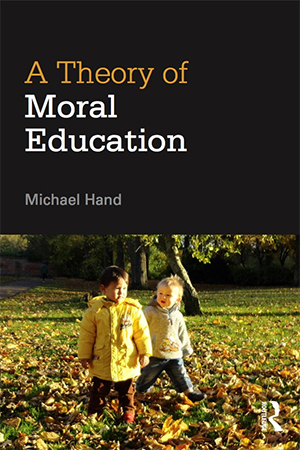
By Michael Hand, Professor of Philosophy and Education
School of Education, University of Birmingham
Schools in England are legally required to promote the moral development of pupils. But what exactly does this involve? Most people agree that morality is important and needs to be taught, but when it comes to saying what it is and how to teach it, the consensus soon breaks down.
The last few years have seen a raft of new government initiatives in the area of values education. In 2014 the Department for Education issued guidance to schools on promoting the ‘fundamental British values’ of democracy, the rule of law, individual liberty, and mutual respect and tolerance. And since 2015 it has invested around £10m in grants to support character education projects, aimed at helping children to be ‘well-rounded, confident, happy and resilient’.
Whatever the merits of these initiatives, they have little to do with the teaching of morality. Indeed, one reason for the general confusion about moral education is that moral values have not been clearly distinguished from values of other kinds. The government’s fundamental British values are political, not moral. Someone who fails to value democracy certainly gets something wrong, but the failing is not a moral one. And the character traits the government champions – grit, resilience, confidence, ambition – are no doubt necessary for survival in unforgiving economic times, but they are hardly requirements of morality.
In my new book I argue that moral values are standards of conduct to which we subscribe in a particular way. We morally subscribe when we try to comply with a standard and expect others to comply with it too. We also see violations of the standard as deserving of punishment or condemnation.
I argue that moral values are standards of conduct to which we subscribe in a particular way. We morally subscribe when we try to comply with a standard and expect others to comply with it too. We also see violations of the standard as deserving of punishment or condemnation.
The stability of human social groups depends on people subscribing to standards in this way. At a minimum, we must hold ourselves and each other to prohibitions on killing and causing harm, stealing and extorting, lying and cheating, and requirements to treat others fairly, keep one’s promises and help those in need. These standards are the core of common morality.
Schools have a role to play in passing on common morality to the next generation. To do this, they must provide two kinds of moral education.
The first is moral formation – cultivating in children the intentions, feelings and habits of moral subscription. This involves giving children moral guidance, rewarding them for doing right and punishing them for doing wrong, modelling good conduct, and modelling appropriate reactions to the conduct of others.
The second kind of moral education is moral inquiry – engaging children in discussion and reflection on the nature and justification of moral values. Teachers must ensure, by explicit intervention or gentle steering, that moral inquiry brings to light the justification for common morality. It is vital that children come to understand what morality is for and why it demands the things it does.
Promoting the moral development of pupils is difficult, but the challenges it poses are not insurmountable. Schools should not shrink from the task of ensuring that children subscribe to moral standards and understand the reasons for them. Society depends on it.
